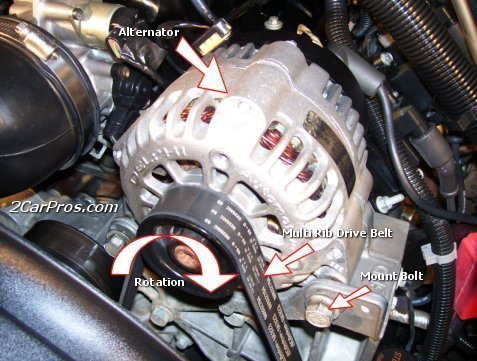Think of the generator as a variable-displacement water pump. It won't move any more water unless there is a place for it to go. An AC generator will not develop more current than the electrical system needs. They are self-regulating in that respect. That means a larger generator will have a higher capacity, but it will not produce higher voltage, more current, or charge the battery any faster.
Where the problem can arise is during a full-load output current test with a professional load tester. That is the only condition where the generator will produce its maximum rated current. That can blow the fuse in the output circuit. There are usually multiple optional size generators that could have been installed at the factory, and the size of the fuse is selected based on which generator is installed. You can usually switch to a larger fuse along with the larger generator because the rest of the wire that is being protected can handle that higher current. Again, during normal driving, you aren't going to get more of anything. The generator just has a higher capacity.
Be aware too that starting with '87 models, this has been a real poor generator design. It is not uncommon to go through four to six of them in the life of the vehicle. Due to their design, they develop huge voltage spikes that can damage the internal diodes, voltage regulator, and interfere with computer sensor signals. It's the job of the battery to dampen those spikes. To reduce the chance of a repeat failure, replace the battery at the same time unless it is less than about two years old. As they age, and the lead flakes off the plates, they lose their ability to dampen and absorb those spikes.
Sunday, February 28th, 2016 AT 2:02 PM



